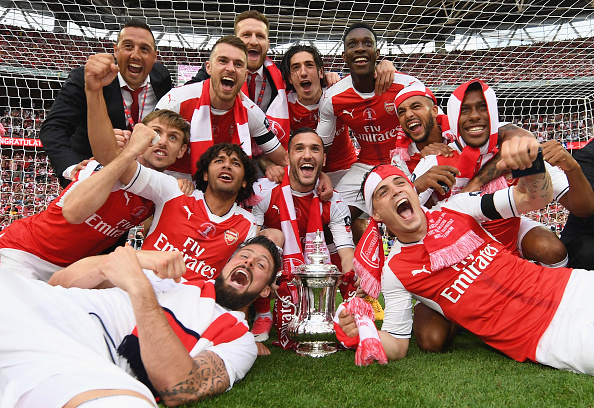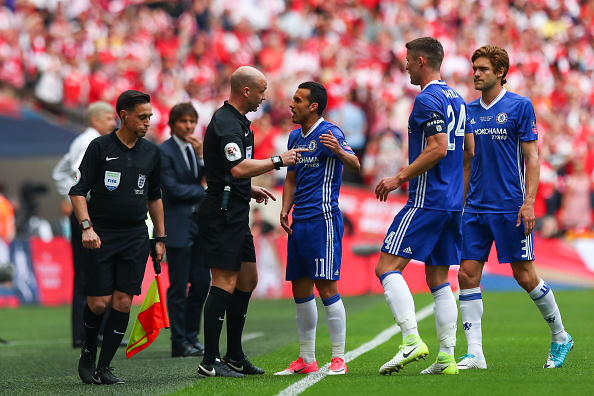
FA Cup Final, Arsenal 2-1 Chelsea: 5 talking points
Arsenal lifted their third FA Cup in four seasons as they beat an underwhelming Chelsea side in an exciting clash at Wembley. Arsene Wenger – whose future at the club remains uncertain – saw his side go ahead through Alexis Sanchez’s controversial goal in the 4th minute. It was a dominant half for the Gunners, but they could not convert any further chances into goals.
The second half saw Antonio Conte’s men press up front, but Arsenal remained defiant at the back. Chelsea’s task was made even harder when Victor Moses was sent off for two yellow cards, the latter for diving inside the penalty area. Despite the one-man disadvantage, however, the Premier League champions levelled matters when goalkeeper David Ospina failed to keep out Diego Costa’s deflected shot.
Also read: Twitter reacts as Arsenal beat Chelsea 2-1 to win third FA Cup in four years
Aaron Ramsey – who scored an extra-time winner in their FA Cup final triumph against Hull City in 2014 – turned hero again, as he headed in from Olivier Giroud’s cross to restore Arsenal’s lead. Chelsea pushed hard, but could not find an equaliser for the second time of asking, meaning that Arsenal are now the most successful club in the history of the FA Cup with 13 titles.
Here are the talking points from an electric final at Wembley:
#1 Controversy behind Alexis Sanchez’s opener – Handball or Offside or both?
Some Laws in football have been multiple amended over the years, and the offside ruling has always been subject to alteration due to various factors match officials must consider before calling play offside. At the beginning of the 2015/16 season, the Law stated that the player need not have touched the ball in order to be caught offside, as long as he was interfering in play by blocking the path or the view of an opposition player.
The game’s first goal witnessed another test of clarity of the offside rule to Anthony Taylor’s refereeing team at Wembley. Chelsea had messed up in their attempt to counter from an Arsenal move, giving possession back to their London rivals. A David Luiz header from a forward pass fell into the path of Alexis Sanchez.
There were initial calls of handball by the Chilean forward as he lobbed the ball over Chelsea’s defence. Aaron Ramsey – who was the furthest forward – was clearly in an offside position but did not touch the ball and allowed Sanchez to surge forward from his own pass.
While some of Chelsea’s players were appealing for handball and the defensive line stood static at the raising of the assistant referee’s flag – Sanchez beat Courtois with a great outside-of-the-boot finish.
The flag was raised which meant that the goal was initially ruled out, but after a lengthy discussion between Mr. Taylor and the linesman who called Ramsey offside, the decision was overturned as the duo decided that Ramsey neither touched the ball nor appeared to interfere in play.
It was a dubious moment for both players and officials, but in the end, it appeared as if the right decision was made, as Ramsey’s body language clearly showed that he had no intent to play the ball with the knowledge that he was in an illegal position. The Chelsea defence’s decision to halt in their tracks when Sanchez played the initial ball may have worked in Ramsey’s favour as well, as he couldn’t have interfered in play against a static defence. This moment was a suggestion that the exact offside rule is not fully clear even to those who arbitrate the game, i.e. the match officials.

